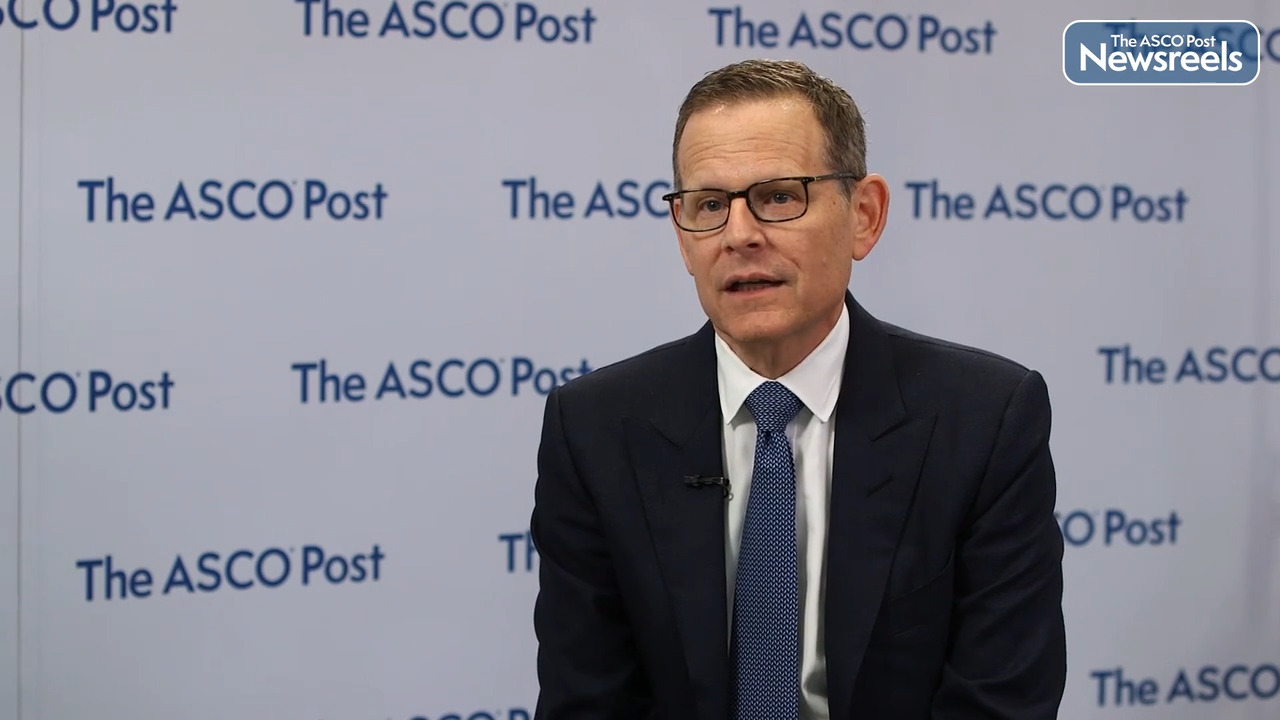Transcript
Disclaimer: This video transcript has not been proofread or edited and may contain errors.
Claire Roddie:
I'm here today to talk about the FELIX study, that's the study of obe-cel in adult acute lymphoblastic leukemia. Essentially, obe-cel is a novel CD-19 CAR with a fast off rate CD-19 binding domain that confers less toxicity and promotes CAR T-cell persistence. We've tested it with the center I work at in London in a phase one study in 20 patients with acute lymphoblastic leukemia, and the results were so promising that it sparked this phase two endeavor, this FELIX study, which is a global study that's been sponsored by Autolus Therapeutics. To describe this study, essentially, it's an autologous CD-19 CAR T product for patients. They're leukapheresed, they then received bridging chemotherapy, fludarabine cyclophosphamide, and then they receive split dose CAR T-cell infusion over day one and day 10. Essentially, that's again to mitigate for immunotoxicity and they also have their initial dose titrated to disease burden on the prelim food depletion bone marrow.These are all safety features built into the study design.
Essentially, on this study we infused 94 patients and given the split dosing, actually on this study, 94% of patients received both doses, which was a really good outcome. The patient population we were dealing with was particularly high risk, so there were a lot of patients with high burden disease. There was a significant portion with extramedullary disease, which we recognized to be a particularly high risk population, so we were dealing with a difficult patient cohort here. But despite that and despite the circulating disease and high burden disease, the manufacture process was extremely successful. 94% of our patients who were leukapheresed had a product released for infusion, which was a great outcome. The event release time on this study was 21 days median. Now in terms of outcomes for these patients, despite the heavy disease burden and the poor risk cohort, actually we saw complete responses in 76% of patients.
What's more, those responses were deep responses, so MRD negative in 97% of patients, which is obviously excellent for us as physicians and a lot of those responses were durable, so 61% of the responses were ongoing at that median of 9.5 months. Again, they continued under close observation, that group. Now, this is really probably quite key, the toxicity profile. CAR T-cell therapy is sometimes not very well tolerated by patients, particularly older patients and patients with comorbidities. But this product, this obe-cel cell is unique in that regard. Also, because we're very minimal grade three immunotoxicity on this study. Only 3% of patients experienced grade three CRS and only 7% experienced grade three ICANS, so in a sense this is very different to what's been described with other CAR T-cell therapies for adult acute lymphoblastic leukemia. It makes it a much more appealing potential therapy for these older and more challenging patients.
When we look in the blood of these patients, and this is another important feature to recognize, is that at last followup, we're seeing the CAR T cells persisting in these patients right the way up until that median follow-up of 9.5 months. This product continues to proliferate within the patient bloodstream in an ongoing way, continuing to survey the body looking for disease and in an ongoing way immunologically rejecting the leukemia in the event of relapse. That's a very encouraging thing for us as well to see that persistence and we hope that that will lead to durable responses in due course. But that's where we've got to so far with the study and we look forward to updating with more followup as the months go by.





